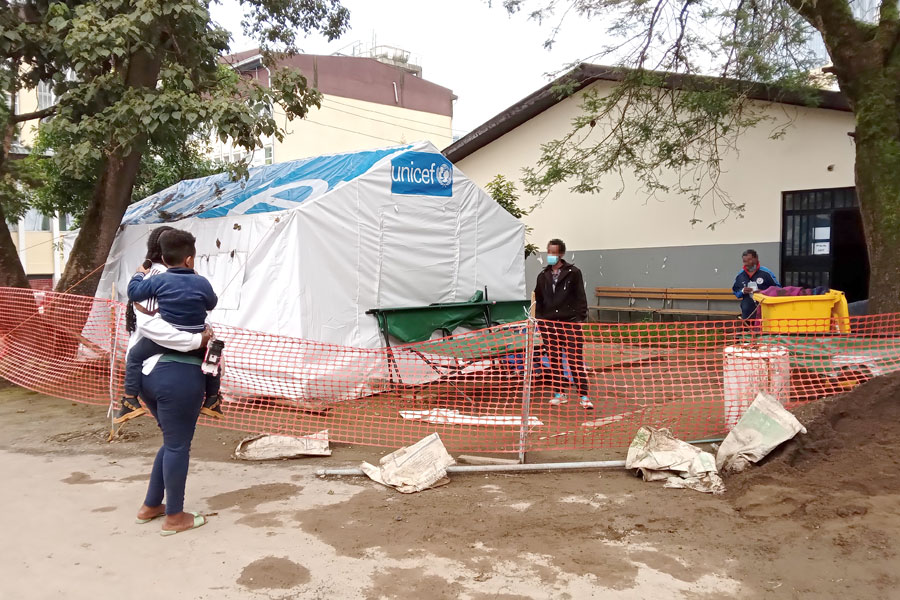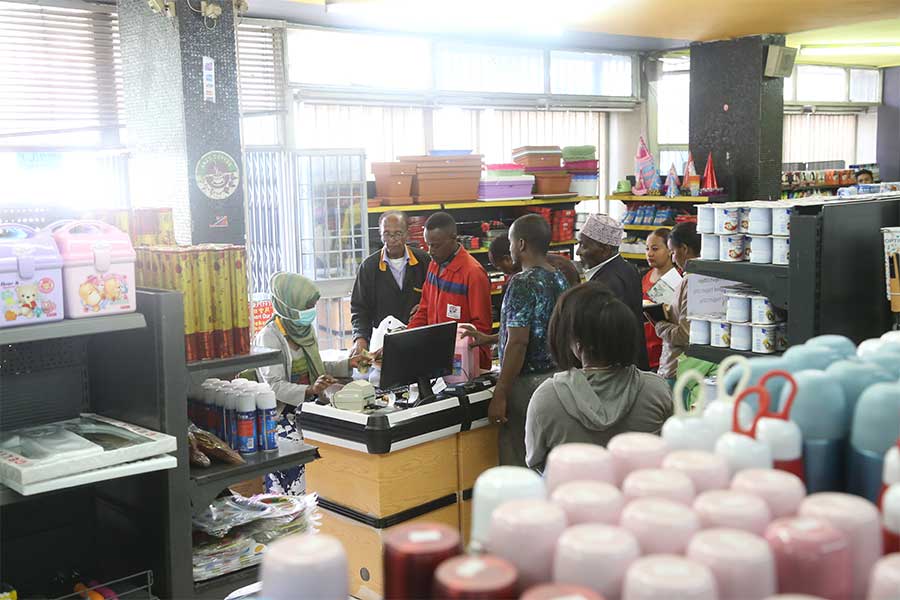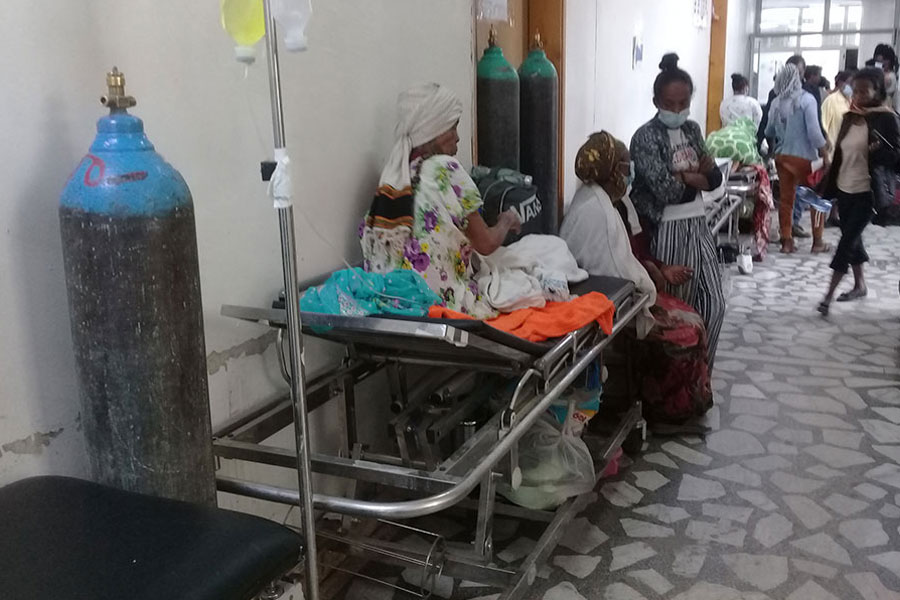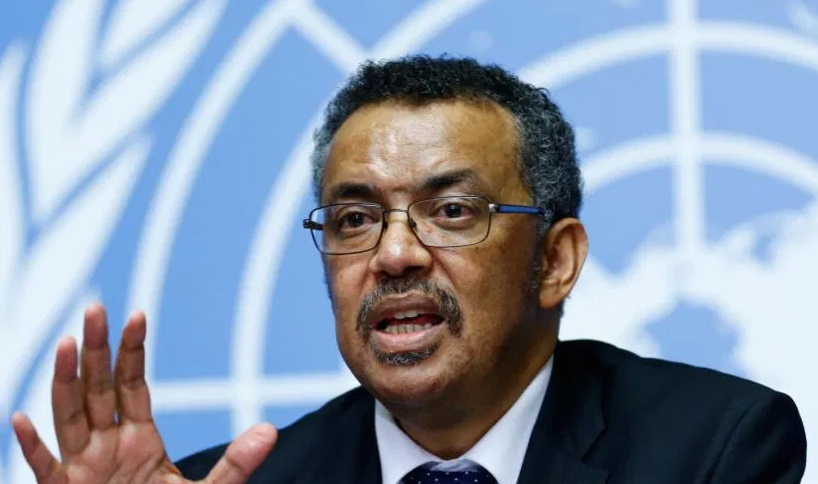
Fortune News | Aug 05,2023
The United States has pledged 40 million dollars for the Ethiopian health sector under a new five-year Health Financing Improvement Program.
The United States development agency, USAID, has channeled the finance to Abt Associates, a firm that researches, evaluates and implements programs in the fields of health, social and environmental policy and international development.
To execute the project, Abt has partnered with Breakthrough International Consultancy, Dimagi, Institute for Healthcare Improvement and Results for Development. Abt, which has been carrying out four programs for USAID, was awarded the contract on October 25, 2018.
The financing aims at expanding Ethiopia’s capacity to provide quality and affordable healthcare, according to Leslie Reed, mission director of USAID Ethiopia.
"With the right political will and commitment," said Reed, "it is possible to lay the foundation for a self-reliant healthcare system, capable of providing high-quality health services."
The new program aims to increase the proportion of the population enrolled in health insurance schemes from 13pc to 50pc. It also aims at reducing the ratio of out of pocket expenditures to total health expenditure from 33pc to 25pc in the coming five years.
The government endorsed its first health care financing strategy in 1998, which also has served as a policy roadmap for implementation of subsequent, wide-ranging reforms over the last two decades.
USAID’s community-based health insurance initiative currently provides medical coverage to nearly 20 million Ethiopians nationwide.
Community-Based Health Insurance and retaining and using of internally-generated revenues on facility and service improvement schemes have become vital in the pastoral and agrarian regions, according to Eshete Yilma, a former USAID team member and veteran in the health finance sector.
“These schemes have enabled the rural community to get access to health facilities for an affordable price,” he said.
Even though the support has helped the country increase public access to primary health care units, the government should focus on enabling the health sector to sustain itself, according to Eshete.
"The sector is a very delicate one," said Eshete, "a skilled leadership and management are needed to bringing the experience gained in the rural regions to the national level."
Beneficiaries of Community-Based Health Insurance are much more aware of their accounts and demand to get the service they paid for, according to Eshete.
"This helped the scheme stay on track," said Eshete.
Last weekend USAID handed medical equipment and medicines valued at 4.2 million dollars to the Ministry of Health. The donation is intended for use in hospitals and health centres in the four pastoralist regional states of Afar, Benishangul Gumuz, Gambella and Somali.
The equipment, which includes ultrasound machines, incubators and heating stations to keep newborns warm after birth, will benefit four million people in 58 weredasof the four regional states.
Along with the four regional states, Black Lion and Saint Paul hospital were recipients of the support. The support is under the five-year project by USAID, Transform-Health in Developing Regions Activity, launched in May of 2017 with 30 million dollars.
The Somali region received the largest share at 28.6pc, while Black Lion got the second largest share of 26.2pc. Saint Paul Hospital got the smallest share of the support at 7.4pc.
During the handover ceremony held at Capital Hotel last Thursday, February 14, 2019, Amir Aman (MD), minister of Health, cautioned the recipients to use the supplies for only the intended purposes.
PUBLISHED ON
Feb 16,2019 [ VOL
19 , NO
981]

Fortune News | Aug 05,2023

Fortune News | Nov 09,2019

Agenda | Mar 21,2020

Fortune News | Dec 09,2023

Fortune News | Oct 21,2023


Viewpoints | Mar 20,2021

Fortune News | Dec 19,2020

Life Matters | Jul 18,2021

Commentaries | Apr 17,2020

Feb 24 , 2024 . By MUNIR SHEMSU
Abel Yeshitila, a real estate developer with a 12-year track record, finds himself unable to sell homes in his latest venture. Despite slash...

Feb 10 , 2024 . By MUNIR SHEMSU
In his last week's address to Parliament, Prime Minister Abiy Ahmed (PhD) painted a picture of an economy...

Jan 7 , 2024
In the realm of international finance and diplomacy, few cities hold the distinction that Addis Abeba doe...

Sep 30 , 2023 . By AKSAH ITALO
On a chilly morning outside Ke'Geberew Market, Yeshi Chane, a 35-year-old mother cradling her seven-month-old baby, stands amidst the throng...

Apr 20 , 2024
In a departure from its traditionally opaque practices, the National Bank of Ethiopia...

Apr 13 , 2024
In the hushed corridors of the legislative house on Lorenzo Te'azaz Road (Arat Kilo)...

Apr 6 , 2024
In a rather unsettling turn of events, the state-owned Commercial Bank of Ethiopia (C...

Mar 30 , 2024
Ethiopian authorities find themselves at a crossroads in the shadow of a global econo...